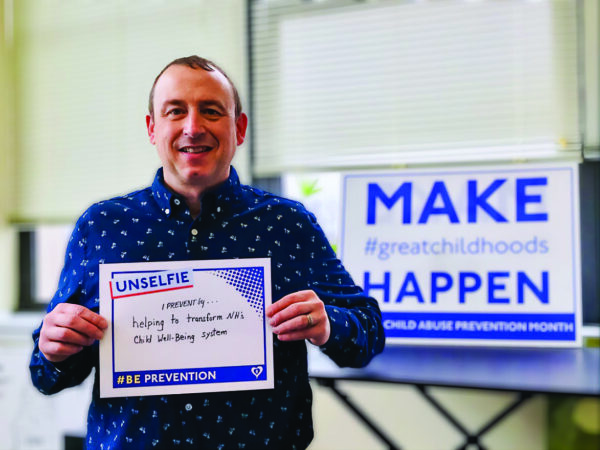NH celebrates Indie Bookstore Day
Saturday, April 24, is Independent Bookstore Day, a nationwide celebration of independent bookstores and the book-lovers who frequent them. Though you won’t find as many in-store author visits, live music, food and other festivities as have been offered in pre-Covid years, local bookstores are doing what they can to make it a special day.
“We are celebrating … but we still don’t feel it is the right time to encourage in-store activities,” said Willard Williams, co-owner of Toadstool Bookstore, which has locations in Nashua, Peterborough and Keene. “Instead, we are using IBD to draw attention to our bookselling staff, who have done so much for us over the past year. We want to acknowledge them with our heartfelt thanks and hope others will as well.”
Participating bookstores will still carry IBD-exclusive items, such as special-edition books, art prints and literary themed novelty items, and some stores, including the Toadstool, will host special events virtually or outdoors.
IBD participating bookstores and special events
• A Freethinker’s Corner (652 A Central Ave., Dover, 343-2437, freethinkerscorner.com)
• Bookery Manchester (844 Elm St., Manchester, 836-6600, bookerymht.com)
Live music, gift card giveaways with purchases and a weeklong trivia contest on Instagram
• The Country Bookseller (Durgin Stables, 23-A N. Main St., Wolfeboro, 569-6030, thecountrybookseller.com)
• Gibson’s Bookstore (45 S. Main St., Concord, 224-0562, gibsonsbookstore.com)
Erin Bowman book signing for Dustborn, on the sidewalk outside the store, 1 to 2:30 p.m.
Literary Cocktail Hour, featuring authors Kat Howard, Kelly Braffet, Cat Valente, and Freya Marskem in conversation with bookstore staff, Zoom, 5 p.m.
• Innisfree Bookshop (312 Daniel Webster Hwy., Meredith, 279-3905, innisfreebookshop.com)
• Still North Books & Bar (3 Allen St., Hanover, 676-7846, stillnorthbooks.com)
• The Toadstool Bookshop (Somerset Plaza, 375 Amherst St., Route 101A, Nashua, 673-1734; 12 Depot Square, Peterborough, 924-3543; 12 Emerald St., Keene, 352-8815, toadbooks.com)
Paddy Donnelly presents The Vanishing Lake, Zoom, 1 p.m.
• Water Street Bookstore (125 Water St., Exeter, 778-9731, waterstreetbooks.com)
2021 IBD exclusive items
Available on Independent Bookstore Day through participating bookstores. Call ahead to find out which items your local bookstore will be carrying.
• Baby Yoda cotton onesie (size 6 to 12 months), a Mandalorian twist on the American Library Association’s iconic “READ” posters
• Signed special edition of Cook, Eat, Repeat: Ingredients, Recipes, and Stories by Nigella Lawson
• Being Alive is a Good Idea, an edited transcript of a conversation held between Nikki Giovanni and Glory Edimat at the 2020 Well-Read Black Girl Festival, covering poetry, Tupac, Black Lives Matter, aliens, pencils, Kamala Harris and more
• Special edition of Embodied: An Intersectional Feminist Comics Poetry Anthology that includes a foil cover and poster
• “Bad Citizen” Graffiti Stencil featuring George Orwell quote, “In a time of deceit telling the truth is a revolutionary act.”
• In the Tall Grass, a short story by Stephen King and Joe Hill, available for the first time in a limited-edition book form
• Signed special edition of Hummingbird Salamander by Jeff VanderMeer
• Art print based on the picture book The ABCs of Black History by Rio Cortez, created by artist Lauren Semmer
• Independent Bookstore Day 2021 pop chart map of participating bookstores in the U.S.
• “Little Victories” canvas pouch (cotton, with zipper, 9” x 6”)
• Signed special edition of Sharks in the Time of Saviorsby Kawai Strong Washburn
For more information about Independent Bookstore Day, visit indiebookstoreday.com.
Zoom Play Festival
Where: Virtual, via YouTube.
When: Pre-recorded, available to watch Friday, April 16, through Sunday, April 25.
Cost: Free, donations appreciated.
More info: Visit communityplayersofconcord.org, belknapmill.org or Powerhouse Theatre Collaborative on Facebook.
Featured photo: 2021 IBD exclusive items. Courtesy photo.






